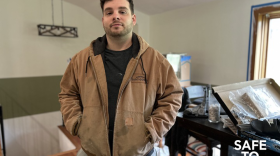Public water system operators are worried about the cost of compliance with new state limits on PFAS chemicals in drinking water.
That was the message from lobbyists at a hearing on the proposals today in Concord.
The PFAS limits the state is proposing would require testing and treatment for the toxic chemicals at public water systems. The up-front cost could be at least $8 million total.
State municipal association lobbyist Barbara Reid says water systems need more money from the state to manage that.
"They did not create these contaminations,” she says. “But it appears that the full financial burden of addressing the cleanup for this is falling on them."
Residents in affected communities, meanwhile, argue the proposals aren't strict enough. Some pointed out that the state has lowered its arsenic standard far below federal advice, and asked regulators to do the same for PFAS.
Clark Freise is the state’s assistant environmental services commissioner.
He says they're looking at possibly providing extra federal funding sources for water systems – and they could still tighten the proposals before they take effect, based on the most recent scientific data.
He notes the state can get money from polluters for cleanup – when polluters are found liable, as they have been in Merrimack and Portsmouth.
"Unfortunately with these compounds, they are ubiquitous,” Freise says. “And unfortunately that means there are sites where there's not going to be a responsible party."
Some states have sued the original makers of PFAS. Records show companies like 3M hid the toxic effects of the chemicals for decades.
Freise says New Hampshire is still evaluating that approach.
The new regulations will go for state approval later this spring, after a final public hearing in Portsmouth next week. The state also held a public hearing in Merrimack on Monday.








